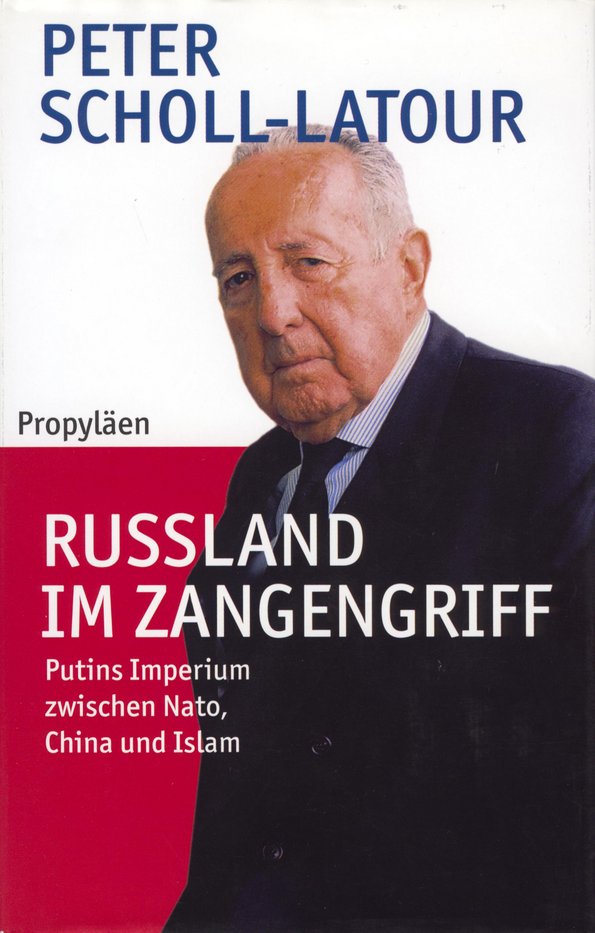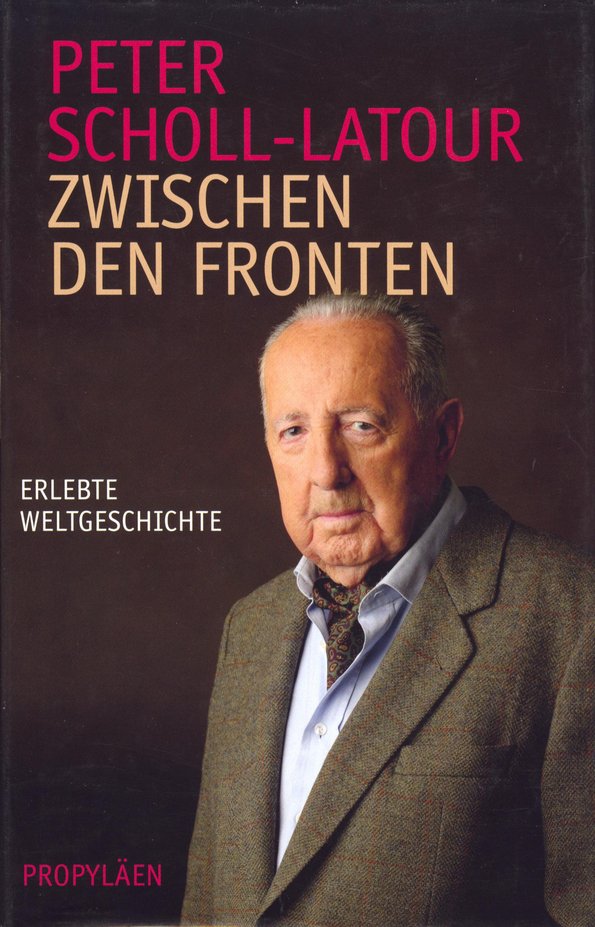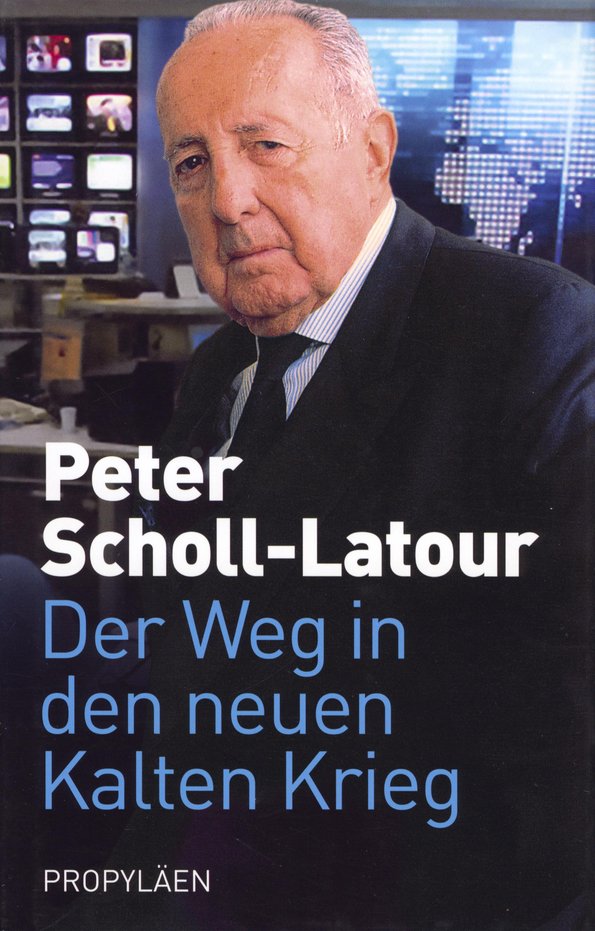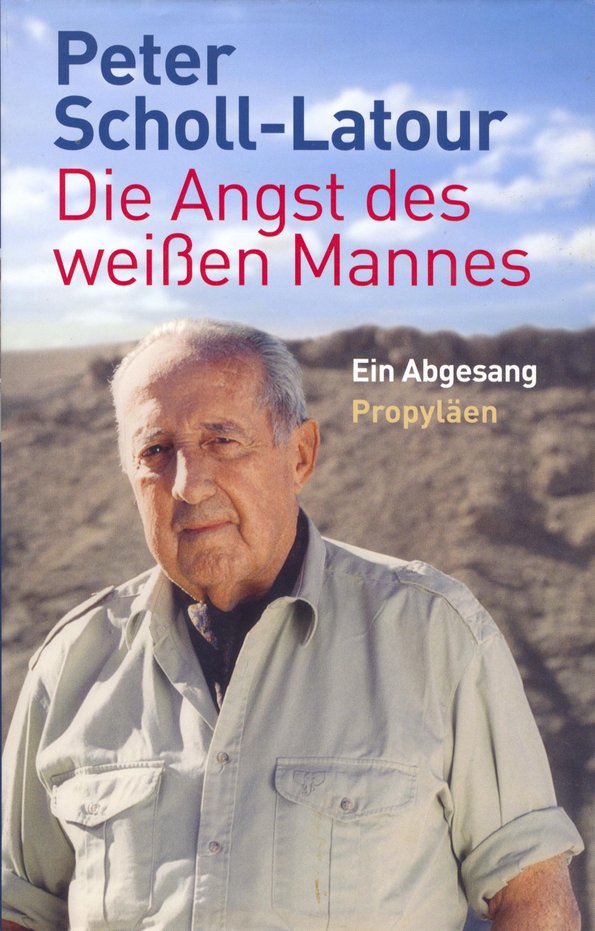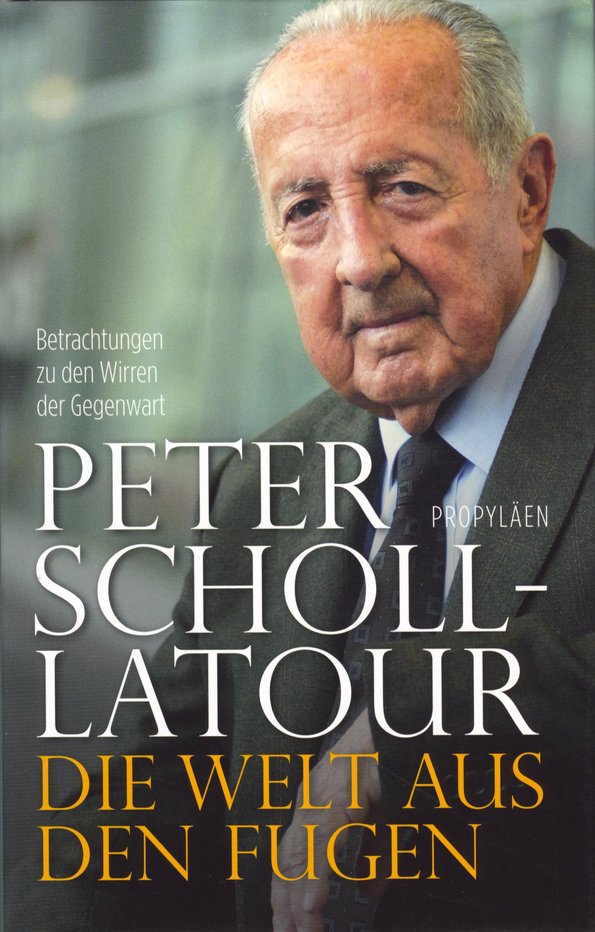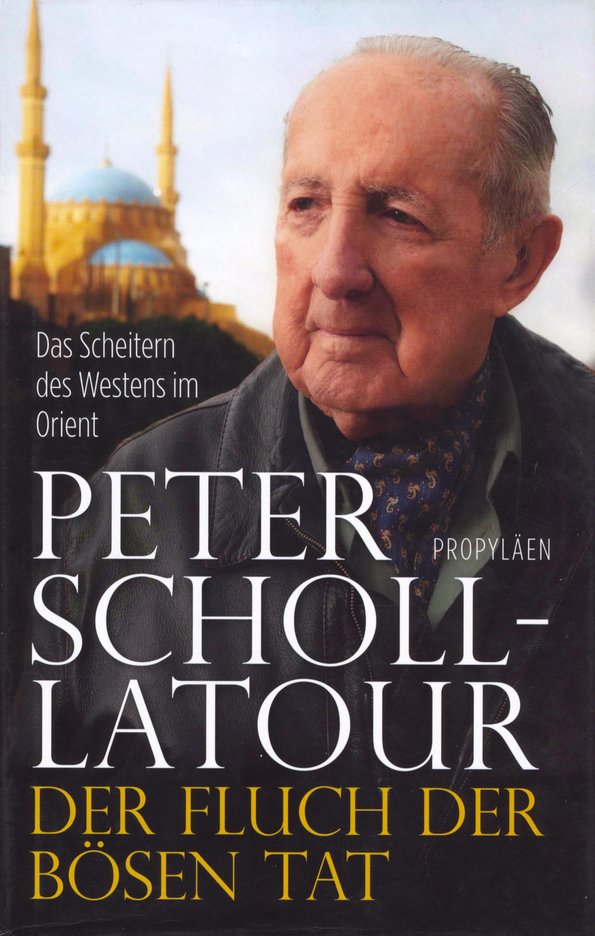Let’s read books again!
In memoriam Peter Scholl-Latour
by Karl-Jürgen Müller
The images are horrible. Now they come from the nearly completely destroyed city of Bakhmut (the Ukrainian name) or Artyomovsk (the Russian name). Every war is horrible, including the one in Ukraine. We are confronted with this horror every day. But, absurdly enough, not so that we do everything humanly possible to put an end to this horror. But rather to make us willing to go to war. Because who is to blame for the horror has been decided even before a thorough investigation. And they are to be fought and defeated. We, the good, against the bad. Only then, we are told, the horror will be over. There is only black or white. And to prevent us from thinking too much, one wave of propaganda follows another; our minds and feelings are numbed with texts and images. Real compassion cannot develop in this way.
I am standing in front of my bookshelf and have decided not to be topical today, but to recommend books. Only from one author: Peter Scholl-Latour.
Peter Scholl-Latour lived from 9 March 1924 to 16 August 2014. He was a journalist and book author. He made many of his books into his own television reports. He wrote more than 30 books, received a lot of recognition for his work, but also strong headwinds – up to attempts to put him on the political sidelines.
I highly recommend reading his books again or reading them for the first time. My claim is that this makes much more sense than the everyday mainstream.
I will not go into detail about the recommended books. You must read them yourself. Current Concerns quoted extensively from one in its first issue after 24 February 2022: “Der Fluch der bösen Tat. Das Scheitern des Westens im Orient.” (The Curse of the Evil Deed. The Failure of the West in the Orient). It was Scholl-Latour’s penultimate, posthumously published book and was number one on the Spiegel bestseller list from 22 September to 19 October 2014. This would probably no longer be possible now.
“The curse of the evil deed”
The title “The Curse of the Evil Deed” could also be the headline for the horror of the war in Ukraine. Suffice it here to quote from the text on the German book’s back cover: “It is fermenting and seething everywhere: Syria and Iraq are sinking into a cruel civil war of all against all, in Turkey Islamist and secular forces are vying for supremacy. Egypt is in constant turmoil, and the situation is also explosive on the northern edge of this troubled region of the world, in the Caucasus and Ukraine. With his characteristic perspicacity, Peter Scholl-Latour illuminates a region over which, after decades of political and military intervention by the West, a curse seems to lie – the curse of the evil act of unholy interference.”
As early as 2006 – one year before Russian President Vladimir Putin’s speech in Munich – Peter Scholl-Latour had published “Russland im Zangengriff” (Russia Surrounded. Putin’s Empire between NATO, China and Islam). On page 182 the German edition reads: “Even today, political analysts in Moscow are asking themselves why the USA did not in any way honour the enormous concessions that Gorbachev granted the Western alliance by agreeing to, and even tacitly promoting, German reunification. The opposite was the case. Like a ravenous animal, NATO had pounced on the Soviet Union falling apart when the last General Secretary of the CPSU indicated his willingness to surrender. The Soviet, then the Russian leadership was systematically bamboozled. All promises were revoked. Like a kind of ‘juggernaut’1 [...] the oppressive military apparatus of NATO moved eastwards.”
In 2007, Peter Scholl-Latour’s book “Between the Fronts. Experienced World History” appeared. Here, too, we will only quote from the blurb: “Peter Scholl-Latour uses his recent travels to the USA, China, Russia, and to the Middle East as an occasion for a very thoughtful, sceptical look at the state of our world. Again and again, he evokes the decline of the European colonial empires, which he himself experienced on many fronts, when he talks about America’s role as a world power. The transience of empires runs like a leitmotif through this book. Peter Scholl-Latour also views the future of Europe, which lacks visions as well as an awareness of its historical identity, with little confidence.”
“The Road to the New Cold War”
One year later, in 2008, the book “Der Weg in den neuen Kalten Krieg” (The Road to the New Cold War) was published. The blurb reads: “After the end of the Cold War and the collapse of the Soviet Union, the West emerged as the victor of history. NATO’s eastward expansion, the Balkan wars, the Afghanistan invasion, or the Iraq campaign – they were all staged without regard for Russia or other non-Western powers. Peter Scholl-Latour has observed these muscle games with scepticism from the beginning. He vividly describes the path to a new, this time multipolar, Cold War between Washington and its European partners on the one side, Moscow, Beijing, and the Islamic world on the other. The West can only lose this confrontation. [...] Connections that the media overlook or suppress – here they become clear.”
Peter Scholl-Latour foresaw very early on what is on the agenda today: the transition to a new world order. In the 2009 book “Die Angst des weissen Mannes. Ein Abgesang” (The Fear of the White Man: A Swan Song), the blurb reads: “For five hundred years the ‘white man’ ruled the world. [...] This era of Western supremacy is finally a thing of the past. The ‘white man’ is in retreat, the former colonial peoples are pushing forward – demographically, economically, in terms of power politics.”
“The world coming apart”
At the end of his 2012 book “Die Welt aus den Fugen. Betrachtungen zu den Wirren der Gegenwart“ (The world coming apart. Reflections on the turmoil of the present), published in 2012, an interview is printed which the German politician Gregor Gysi (Die Linke) conducted with Peter Scholl-Latour. Gysi asks: “Now is there a message in your books and reportages that you want to convey?” The answer is: “I have never understood my activity as delivering a message. I have limited myself to describing things as close to reality as possible. I think that is enough. I don’t even want to use the word ‘truth’. But if I have a message, it is this: We are subject to such massive disinformation that I want to fight it with my books.”
Peter Scholl-Latour’s books have reached a total circulation of 10 million copies. His 1979/1980 book on Indochina, “Death in the Rice Fields”, was the best-selling non-fiction book in Germany since 1945, with 1.3 million copies by 2014. As a journalist, book author, filmmaker and, above all, as a public figure, he has received many honours.
Today I wonder how many people (in Germany and elsewhere) still remember Peter Scholl-Latour and his books. And how many are willing to take out his books again, to read them and to draw appropriate conclusions from them. Other conclusions – more reasonable, more humane, connecting peoples – different from what our politics is demonstrating. And to take seriously the realisation that we are in the midst of a transition to a new world order, for which the word “Zeitenwende” (turning point) really fits. •
1 Juggernaut is a metaphorical term. It stands for an unstoppable force that destroys everything in its path. The origin of the word lies in the huge processional chariots (Ratha) weighing many tons that are used during a certain Hindu procession (Ratha Yatra) in honour of the god Jagannatha (Vishnu). Once set in motion, these chariots are almost unstoppable by humans.
Peter Scholl-Latour “was able – thanks to his encyclopaedic knowledge and outstanding memory – to build a unique bridge between past and present. Through recourse to history and religion, he was able to classify events of today. No matter how many times he travelled to a country, he always prepared himself as if he were visiting it for the first time. […] Peter Scholl-Latour has retained his independent, idiosyncratic spirit – being politically correct did not interest him […]. His maxim was always to report only on what he himself had seen and experienced on the ground.”
(Cornelia Laqua. Epilogue to Peter Scholl-Latour. Mein Leben (My Life);
2015 (posthumous), p. 432, ISBN 978-3-570-00508-8)
